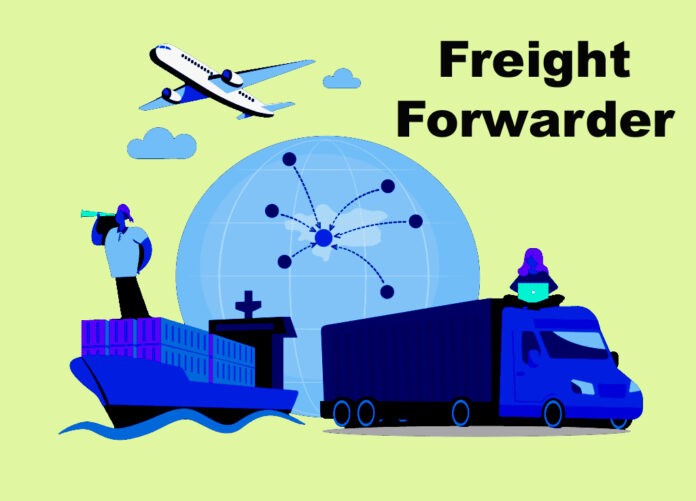Selecting the best freight forwarder for our business is important for ensuring smooth, cost-effective, and reliable shipping terms. Step-by-step guide line on how to select the right freight forwarder for your needs:
1. Identify Your Shipping Needs
Before selecting a freight forwarder, we need to clearly know about our shipping needs. Consider the following factors:
- Volume and frequency of shipments: If we are shipping large quantities regularly, or do we only need occasional shipping?
- Types of goods: Are we shipping fragile goods, dangerous materials, or heavy items? Particular freight forwarders focus on particular sectors.
- Destinations: We should know that our business requires international shipments or domestic deliveries? Then select a freight forwarder with expertise in our key routes.
- Shipping modes: Should we follow that we need air freight, ocean freight, or land transportation? Searching for a freight forwarder who offers the modes that suit our needs.
2. Evaluate Experience and Expertise
- Industry specialization: Some freight forwarders specialize in specific industries, such as electronics, fashion, or food. Select a forwarder with experience in handling goods that are similar to us.
- Geographic expertise: Confirm that the freight forwarder has vast knowledge of and connections in the countries that we are exporting from and importing to.
- Track record: Review their experience in the industry and the types of shipments they handle. We pleasure a firm with a track record of dependable service.
3. Check Reputation and Reviews
- Online reviews: Research about the reviews and feedback from other businesses who have used the freight forwarder’s services. Look forward to feedback on timeliness, communication, and customer service.
- Word of mouth: Talk to other businesses or suppliers in our industry for recommendations. Networking can provide us with insight into the quality of service.
- Accreditations: Look for various certifications like ISO or membership in trade associations like FIATA, IATA, NVOCC to confirm the company’s credibility and professionalism.
4. Evaluate Their Services
- End-to-end services: Ideally, choose a freight forwarder who offers us a complete range of services, including:
- Customs clearance: Make sure they can handle all necessary documentation and duties for smooth customs clearance.
- Warehousing and packaging: If we need storage or specialized packaging, confirm that they also offer this.
- Insurance: They should be able to offer cargo insurance to cover potential risks during transit.
- Tracking and visibility: Make sure that they provide a tracking system that allows us to monitor our shipments in real-time.
- Technology and systems: A good freight forwarder will have advanced software for booking, tracking, and managing shipments, which can streamline our processes.
5. Compare Pricing and Value
While cost is an important factor, don’t make it our only priority. Look for a balance of price and service:
- Transparent pricing: Confirm that the freight forwarder shares clear, up-front pricing with no hidden fees. Understand their pricing structure like per kg, per cubic meter, or flat rates.
- Shipping cost: Comparison between quotes from multiple forwarders for similar ways and services. However, be observant about selecting the lowest price, as it may compromise service quality.
- Value-added services: Consider what additional services are included in the price, such as tracking, customer support, and documentation handling.
6. Assess Customer Service and Communication
- Responsiveness: A reputable freight forwarder should respond quickly to queries and keep us informed throughout the process. Evaluate their communication speed and professionalism.
- Multilingual support: If we are dealing with international shipments, then confirm that they have multilingual staff to assist with different languages or different cultural issues.
- Personalized service: Search for a company that provides a dedicated point of contact who understands our business and specific needs.
7. Understand Their Network and Partnerships
- Global partnerships: A strong freight forwarder will have relationships with reliable carriers, ports, and customs authority people around the world. Confirm that they have the infrastructure to handle our shipments smoothly.
- Flexibility and scalability: They should be able to accommodate changes in shipment volume and adapt to our needs as our business grows.
8. Evaluate Risk Management
- Insurance options: Ask about the freight forwarder’s insurance policies and which level of coverage they provide for cargo protection.
- Contingency planning: A good freight forwarder should have strategies in place to deal with delays, damage, or other unforeseen circumstances like bad weather, strikes, or customs delays.
9. Trial Shipments
If we are not sure about the freight forwarder’s service quality, consider starting with a trial shipment. This allows us to examine their efficiency, customer service, and ability to handle our goods without committing to a long-term contract.
10. Long-term Partnership Potential
Finally, we should think about the potential for a long-term relationship. A good freight forwarder is not just a service provider but also a partner who can help our business grow by offering solutions for expansion and better cost management. Confirm that they have the ability to handle our future needs as our business enlarges.




